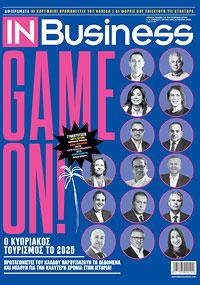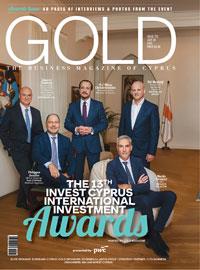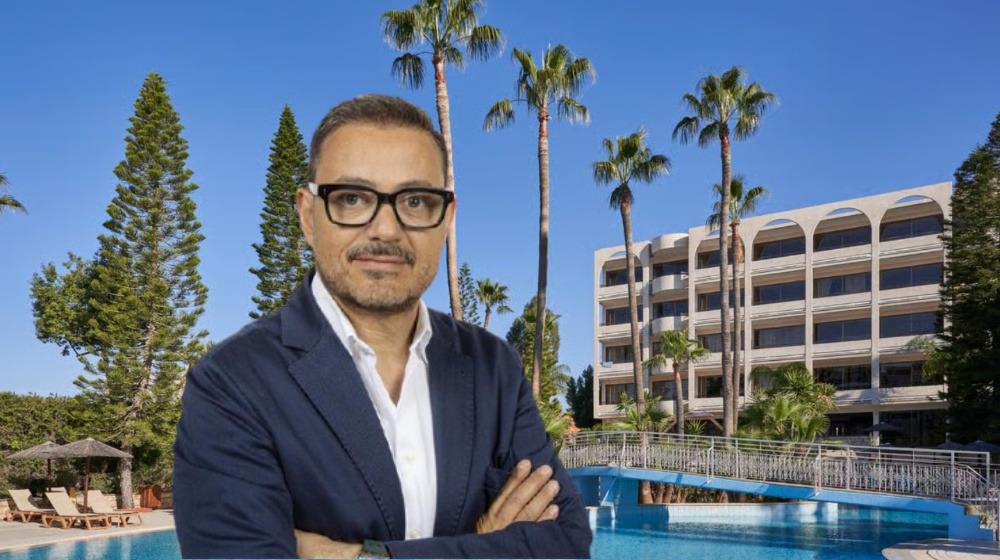Maintaining a positive course in tourism requires coordination between hoteliers, airlines, local and state bodies, with investment in sustainability, technology, but mainly in extending the tourist season, which is essential, emphasises the joint CEO of Wavemaker Hospitality Group, Dimitris Nicolaides.
In an interview in the August issue of IN Business magazine, Nicolaides emphasises that further growth in the industry can only come with an extension of the season, which, as he states, should be an important strategic goal for all tourism stakeholders.
Dimitris Nicolaides points out the need for reliable criteria for evaluating the industry's performance, explaining that relying on arrivals is not always a reliable indicator.
At the same time, he identifies as one of the greatest challenges - also related to seasonality - the lack of professionally trained personnel, while outlining the environment of the tourism sector in Cyprus, he highlights the necessity for each and every hotelier to remain flexible and competitive, expanding their product, both towards new hotel units and to other markets.
2024 was one of the best years in terms of tourism, with arrivals exceeding 4 million and revenues reaching €3.2 billion. How did hoteliers experience this event and what are your predictions on its continuation in 2025?
We consider it necessary to clarify the difference between arrivals, overnight stays and entries.
Referring to arrivals, in our view, is not always a reliable indicator, as they include Cypriots returning to the island, those staying in Airbnbs or villas and, unfortunately, visitors to occupied Cyprus who are constantly increasing.
On the contrary, overnight stays are a measure recorded by all legal accommodations and constitute, for us, the most reliable comparison metric. Revenue, although a metric for evaluating the economy, may not be representative of the real picture.
Given these challenges and the need for reliable evaluation criteria, our group in 2024 recorded occupancy rates of over 80% and met the goals we had set.
What was the contribution of hoteliers in attracting record numbers of tourist arrivals? How do you promote your hotels abroad?
As hoteliers, we contribute substantially to attracting tourists, investing in upgrading infrastructure and diversifying our products, with the aim of meeting new needs and reaching different markets.
We strengthen cooperation with travel agents, participate in large and smaller international exhibitions and roadshows, important for new markets, while always maintaining our presence in the English market.
At the same time, we leverage digital marketing and social media campaigns, tailored to the needs of each market. By understanding social changes and new travel behaviors, we promote not only our hotels, but also the destination itself.
Less dependency
What markets do your hotel guests come from and what category do they fall into? Has the Russian market gap been filled?
The United Kingdom, Germany, the Nordic countries and Central Europe are included in our main markets.
Our guests belong mainly to the leisure category, they are families and individuals seeking luxury services, as well as business travelers.
The gap left by the Russian market was successfully filled with the investment and development of our activities in the Central European market, in countries such as Romania, Poland, Hungary, the Czech Republic and Israel.
More generally, challenges such as geopolitical developments have pushed us to expand to more markets outside Europe, as we do not wish to depend only on the three major traditional markets.
Airbnb and other issues
Today, one of the biggest challenges - also related to seasonality - is the lack of professionally trained personnel.
We believe that institutional support is needed to extend the tourist season, so that younger generations view the hotel industry more positively.
We are also concerned about unfair competition from forex and fintech companies, as they attract a large part of the new generation of workers.
At the same time, Airbnb and the conversion of apartments into accommodation in the towers of Limassol is a reality that creates serious challenges for us, as well as disappointment in the way the state authorities are responding.
What percentage of your bookings come from Cypriot and foreign tour operators, how many from individual bookings and how many are repeat customers?
The vast majority of our bookings come from foreign tour operators. Without a national carrier we are tied to the air connections offered by foreign tour operators and in essence Cyprus relies on the partnerships it establishes with them.
The percentage of reservations from Cypriots is minimal, but we need to emphasise the upward trend in recent years, an element that, for us, indicates confidence.
What are the main trends in the tourism/hotel industry and how are customer preferences shaped? What are your hotel customers now looking for?
We have noticed that after the pandemic, our customers are looking for authentic personalised experiences and a balance between comfort and sustainability.
They want to connect meaningfully with the destination, experience the local culture, and create meaningful experiences, not only for themselves, but also with their loved ones.
Season extension
What actions should be taken by hoteliers in collaboration with tourism stakeholders to maintain this positive image and, why not, further increase arrivals? How do you invest in your hotels?
In a broader context, maintaining the positive trajectory requires coordination between hoteliers, airlines, local and state agencies.
Investing in sustainability, technology, but especially in extending the tourist season, is essential.
In reality, however, further growth can only come with an extension of the season, which should be an important strategic goal of all tourism stakeholders.
Flexibility and competitiveness
What are your predictions for 2026? Do you already have a picture?
In recent years, there has been a trend in markets with early bookers towards more last-minute bookings. This fact makes it difficult to make any reliable predictions about how the tourism industry will move even in the near future.
Other factors that also have an influence are the adverse economic conditions experienced by Europe, climate change and intense competition in general and especially from North Africa.
In such an environment, a hotelier must remain flexible and competitive, expanding their product both to new hotel units and to other markets.
In conclusion, I would say that as long as the destination's image remains positive, we can hope that the industry's upward trajectory will continue in 2026.
The Wavemaker Hospitality Group
- Founded : 1980 in Limassol
- Founder : Nikolas Nicolaides
- Management: 50 hotels in Greece and Cyprus
- Brands: Atlantica Hotels & Resorts, Mare Resorts, Aphrodite Hills Resort, APHI Resorts and AMOH, a Luxury Collection Resort, Rhodes
- Staff: 6,500 people









